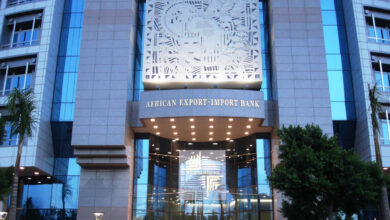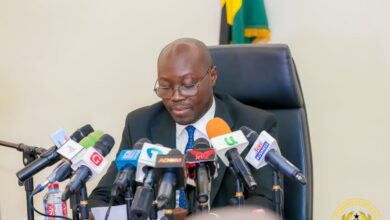‘Strong Fiscal Discipline Vital to Bridging Ghana’s Funding Gap’

Ghana can overcome its fiscal challenges with robust fiscal discipline and a focus on export-driven policies, says Prof. Lord Mensah, a financial economist at the University of Ghana Business School (UGBS). Highlighting the anticipated decline in global crude oil prices and other revenue pressures, Prof. Mensah has called for a strategic approach to economic management to stabilize the country’s finances.
“With serious government planning to reorient the economy, reduce reliance on taxes, and enhance exports, the gap can be closed,” Prof. Mensah emphasized. He cautioned that the expected fall in crude oil prices—from $81.29 per barrel in 2024 to $72.84 per barrel in 2025—poses significant risks to Ghana’s petroleum revenue but noted that disciplined fiscal policies could minimize the impact.
Declining Oil Revenue Amid Economic Pressures
Ghana’s fiscal landscape faces mounting challenges within a tough global economic climate. With economic growth projected to stagnate at 3.2% in 2025 and key trade partners such as China experiencing slowdowns, global uncertainties—including tensions in the Middle East—are disrupting energy and commodity markets.
Domestically, the combination of weaker oil demand, declining crude production, and reduced oil prices threatens Ghana’s petroleum receipts, which are vital for government revenue. These pressures are compounded by plans to remove certain taxes, a move intended to ease the burden on citizens and stimulate economic activity. However, Prof. Mensah warned that such measures could weaken domestic revenue mobilization, potentially undermining the execution of Ghana’s 2025 budget, slated for presentation on March 11, 2025.
“Relying heavily on oil revenue in an unpredictable global environment is risky,” Prof. Mensah stated, urging the government to adopt export-oriented policies and strengthen revenue generation strategies.
Calls for Export-Led Growth and Fiscal Prudence
The economist underscored that Ghana’s traditional dependence on taxes and donor funding has reached its limit, especially as USAID withdraws critical funding. “We cannot continue to depend on external aid or a tax-heavy economy, especially when taxes are choking production,” Prof. Mensah said, stressing the importance of prioritizing exports as a sustainable revenue source.
Adding to the fiscal debate, Dr. Priscilla Twumasi Baffour, a Senior Lecturer at the University of Ghana’s Department of Economics, advised caution against rolling back taxes for political expediency. She noted that while eliminating so-called “nuisance taxes” aims to promote production, economic growth requires time to materialize.
“Government should not be hasty in removing all the taxes it promised to cut if it’s very difficult to replace that revenue,” Dr. Twumasi Baffour stated, highlighting the potential risks to the economy if critical funding gaps are left unaddressed.
Balancing Risks and Opportunities
With the global economic environment uncertain, Prof. Mensah and Dr. Twumasi Baffour’s insights point to a critical balancing act for Ghana—one that demands disciplined fiscal management, strategic planning, and a commitment to export-led growth. As the government prepares its 2025 budget, these recommendations offer a path to navigating economic challenges while ensuring stability and growth.




